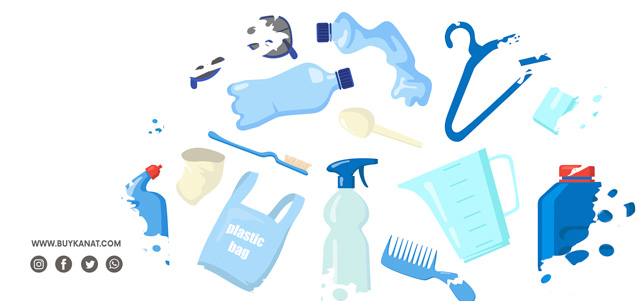
Does Plastic Harmful? Known Wrongs
Does Plastic Harmful? Known Wrongs
Some materials have entered every aspect of our lives. Plastic is one of them. These products are used everywhere such as in the containers, packaging or food and beverages covers in which we eat. The increased use has raised a questions: Does plastic harmful?
Does Plastic Harmful?
Plastics are widely used in the kitchen, from containers for food scraps to dishwashers, cutlery, bottles, even coating in canned foods. However, recent research has shown that the chemical Bisphenol A (BPA) and phthalates, commonly found in many plastics, can infiltrate food and pose potential health risks. However, these problems can be prevented by products made of good materials and the correct use of these products.
Some Tips for Plastic Safety
There are considerations to prevent BPA and phthalates from leaking into food, which may be a problem for your health. These recommendations will also be the best recommendations for the question of whether plastic is harmful. These are summarized as follows;
- Do not use microwaves for your plastic products,
- Take care to wash your products by hand,
- Do not use your drawn or worn products,
- Do not store hot food in plastic products. Please choose these products for cold food or beverages,
- Do not forget to look at the labels. In particular, check for warnings such as "no phthalate" or "BPA-free".
- Be sure to review the recycling codes. Although it may seem like a simple trick, all numbers can be a guide for you.
What Do Recycling Symbols Mean?
Plastics are classified for recycling according to the substances they contain or their use. Knowing these symbols will give you the necessary information to answer the question of whether plastic is harmful. These symbols are;
- PET or PETE (Polyethylene Terephthalate),
- HDPE (High Density Polyethylene)
- PVC (Polyvinyl Chloride),
- LDPE (Low Density Polyethylene)
- PP (Polypropylene),
- PS (Polystyren),
- Other (BPA, Polycarbonate and LEXAN).
Code 1, 2, 4 and 5 usually refer to plastics that do not contain BPA or phthalate. Pete (code 1) is used for disposable water bottles. These do not infiltrate, but are not recommended to be refilled and reused. PVC and PS (Code 3 and 6) define plastics containing BPA. The other group (Code 7) contains polycarbonate, a plastic containing BPA that should be avoided, among other plastics that can be safe. You can find detailed information about recycling codes in our article.
Kastamonu Plastic products are designed for you and protect your health. It will not be a problem for you if the instructions for use are followed. With the Buykanat guarantee, products with wholesale and partial sales opportunities have the possibility to be sold to all points of the world. With the assurance of Buykanat, you can take a look at the products that will add value to you and your customers.

